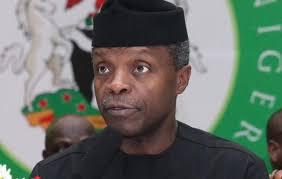Despite billions of naira already committed to the digital national identity project without much result to show for the investment, the Vice President, Prof. Yemi Osinbajo, today hinted that the project would require additional $1.3 billion before tangible results could be achieved from the multi-billion naira venture.
The Vice President disclosed this at a workshop on Strategic Roadmap for Digital Identity, Eco-system in Nigeria which held in Abuja.
The Vice President, who was represented by his Special Assistant on Information Communication and Technology, ICT, Lanre Osibona, at the forum reiterated government’s determination to ensure the success of the project in the face of all odds.
He said: “This is over two years of relentless effort to get to where we are today. The issue and challenges to ensuring a successful national identity are many and they must be addressed collectively. However, one thing I can assure you of is that funding has never been one of those challenges.
“We are projected to spend an additional 3.1 billion US dollars, if we are to follow the existence approach of developing identification in Nigeria. The incredible benefit of this programme is at stake and we must get it right this time,’’ Osinbajo said.
According to the Vice President, the major challenge facing the programme remains the lack of a working record system and practical approaches.
He disclosed that in order to eliminate the hurdles hampering the realization of the objectives of the project, changes had been made to ensure that the enrollment procedure becomes less bureaucratic, including the reduction of identity attributes from 75 to 10.
Osinbajo emphasised on the gains of the digital identity project for national development, stating that, for instance, the Federal Road Safety Corps, FRSC, would easily enforce traffic offences through unified identity system.
According to World Bank research in 2015, Nigeria spent $1.2 billion since the late 1970s on the identity programme but much work remained undone still.






